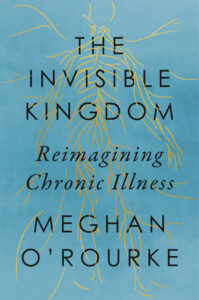This piece is excerpted from We All Want Impossible Things by Catherine Newman, a guest at Amherst College’s 2023 LitFest. Register for this exciting celebration of Amherst’s literary life.

“What do you think happens after you die?” she says. “Oh!” I say. “Gosh.”
I was raised in a fully atheist household, so not much is the short answer. “Just toss me in the dumpster when I go!” my dad likes to announce, and when I’m like, “Um, Dad, I think funerals are actually more about—” he interrupts me. “In the dumpster!” “Okay!” I say. “The dumpster it is!”


























